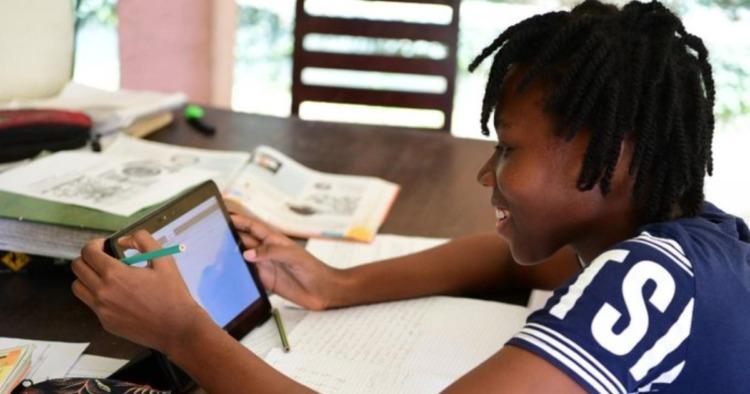- Airtel Africa and UNICEF said the deal will see them connect schools to the internet and ensure free access to learning platforms across 13 countries
- Airtel Africa is the first African private sector partner to make a multimillion-dollar commitment to ‘Reimagine Education’, a global initiative launched by UNICEF in 2020
Airtel Africa and UNICEF have entered into a five-year pan-African partnership to help accelerate the roll-out of digital learning.
In a statement, the partners said the deal will see them connect schools to the internet and ensure free access to learning platforms across 13 countries.
These are Congo, the Democratic Republic of the Congo, Gabon, Kenya, Madagascar, Malawi, Niger, Nigeria, Rwanda, Tanzania, Uganda and Zambia.
Airtel Africa has revealed that its financial and in-kind contribution for this partnership is $57 million over five years to 2027.
By providing equal access to quality digital learning, particularly for the most vulnerable children, the partnership is expected to help to ensure that every child reaches their full potential.
Airtel Africa is the first African private sector partner to make a multimillion-dollar commitment to ‘Reimagine Education’, a global initiative launched by UNICEF in 2020 calling for public and private sector investment in digital learning as an essential service for every child and young person across the globe.
The initiative aims to give children a chance to catch up on their learning needs amid the ongoing global pandemic.
“Hundreds of millions of children in Africa have seen their education disrupted or put on hold because of the COVID-19 pandemic,” said UNICEF Executive Director Henrietta Fore.
“By championing digital education for children in Africa, this partnership with Airtel Africa will help put children’s learning back on track.”
The programme will call on technology and expertise, in addition to direct financial support to connect schools and communities to the internet, enable free access to online educational content for learners.
It will also provide vital data insights to inform UNICEF’s work to scale-up digital learning and help ensure it is sustainable and meets students’ needs across Africa.
“As a business, we have focused on education as a key area of our corporate social responsibility, and we are delighted that this partnership with UNICEF will enable us to accelerate results. It also coincides with the launch of our new sustainability strategy, which lays out our commitment to education,” said Olusegun Ogunsanya, CEO of Airtel Africa.
“We are excited to be working with UNICEF to advance the education agenda on the continent through facilitating connectivity and online access to play a role in driving change,” he added.
Digital Gender Divide
The launch of the partnership come at a time when a new finding has revealed that globally, 3.7 billion people do not have access to the internet, with half of them being women.
The data provided by UN Women indicates that in some parts of the world, the digital gender divide has been shrinking, but it is growing in Africa.
“The pandemic has shown that access to technology is not a luxury anymore, it is a necessity, especially for girls. There is a gender digital divide globally: girls are disadvantaged when it comes to digital adoption, have lower levels of access to and use of digital technology than boys, and often they are not benefitting from digital technology as boys are,” the organization said last month.
This was revealed when UN Women, in partnership with the African Union Commission (AUC) and the International Telecommunication Unit (ITU) implemented the African Girls Can Code Initiative to train African girls in critical coding and tech skills.
Launched in 2018, the first phase of the African Girls Can Code Initiative (AGCCI) has trained 600 girls, developed a guide on mainstreaming ICT, gender and coding in national curricula across the continent, launched an eLearning platform and hosted a series of webinars to keep the learning going in the pandemic.
This year Generation Equality Forum, convened by UN Women and the Governments of France and Mexico in collaboration with civil society, launched an Action Coalition on Technology and Innovation for Gender Equality and collected commitments from all over the world, including from the Actional Coalition Leader the Government of Rwanda.
The Action Coalition will tackle the digital gender divide as its importance is growing with the COVID-19 pandemic and measures to contain it.
